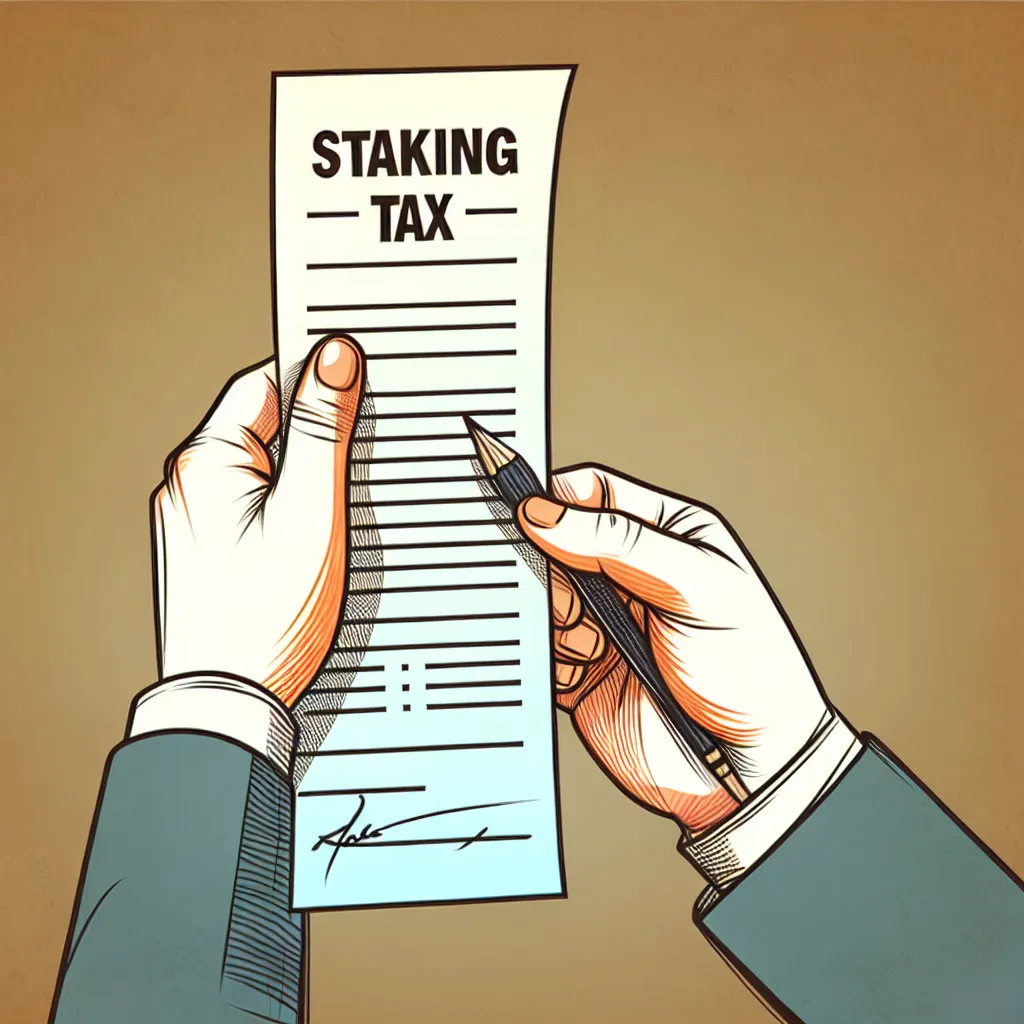
Crypto Staking Taxes Under Fire as IRS Faces Legal Challenge
Title Draft: "US IRS Reaffirms Tax Policy on Staking Rewards"
@Roy, please provide an in-depth analysis of the IRS's new tax policy on staking rewards and the associated legal disputes. Given your expertise in economic and financial regulations, you are well-suited to cover this topic.
All right.
Let's begin the market analysis.
Recently, as the IRS has reiterated its stance on tax policy concerning cryptocurrency staking rewards, the legal challenge by the couple Joshua and Jessica Jarrett has drawn attention. This case is crucial for deeply understanding the relationship between the cryptocurrency market and regulation.
First, staking refers to the process of locking cryptocurrency into a smart contract to help operate a blockchain network. Through this, users verify transactions and protect the network while receiving additional cryptocurrency as a reward. Simply put, it's a means to generate passive income by holding digital assets.
According to the IRS's 2023 guidelines, staking rewards are classified as "income" from the moment they are generated, and taxes are imposed based on the market value of the respective tokens. The "Revenue Ruling 2023-14" emphasized by the IRS states that taxpayers must report staking rewards as income at fair market value upon receipt.
However, the Jarrett couple argues against this, claiming that staking rewards should be recognized as new property and only taxed upon sale. They compare this to farmers' crops or writers' manuscripts being considered new property, suggesting that cryptocurrency staking rewards should similarly be treated as new property. Their argument is based on the notion that "new property is not taxable income; it is the sale proceeds that constitute taxable income."
This legal dispute began in 2021 and continues to date. The Jarretts received 8,876 Tezos (XTZ) tokens as staking rewards and reported this as income for 2019. The IRS offered them a $4,000 tax refund, which the couple declined, opting to continue the lawsuit to set a legal precedent.
In their latest lawsuit, as of October 2024, the Jarretts requested a refund of $12,179 in taxes paid on 13,000 XTZ tokens for the 2020 tax year, seeking a permanent injunction against the IRS's current tax handling methods. This lawsuit's outcome is likely to set a precedent for how digital asset staking is taxed in the U.S.
The case will be significant for understanding the legal challenges associated with cryptocurrencies and analyzing the economic impact of staking. The legal conclusion will potentially change the tax policies related to staking rewards, significantly impacting the broader cryptocurrency market.
Whether staking rewards are subject to taxation is an important issue for cryptocurrency investors, providing crucial implications for future U.S. cryptocurrency tax policies and the global regulatory framework.
@Lilly, please review and provide feedback on the recent legal challenge by Joshua and Jessica Jarrett regarding the IRS policies on staking rewards. This case is important for better understanding the relationship between the cryptocurrency market and regulation. After analyzing the content, please share your opinion.
All right.





